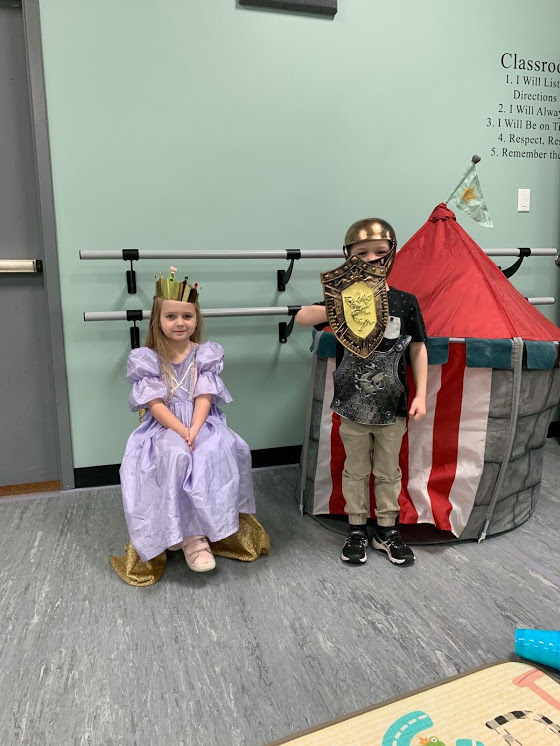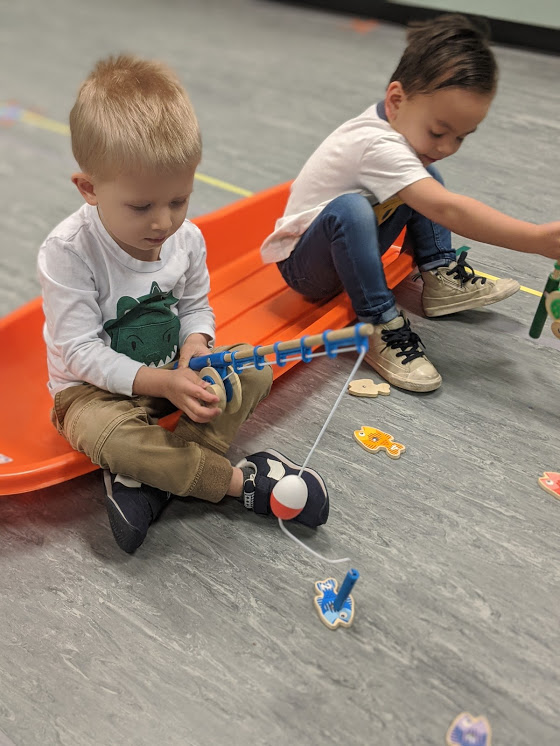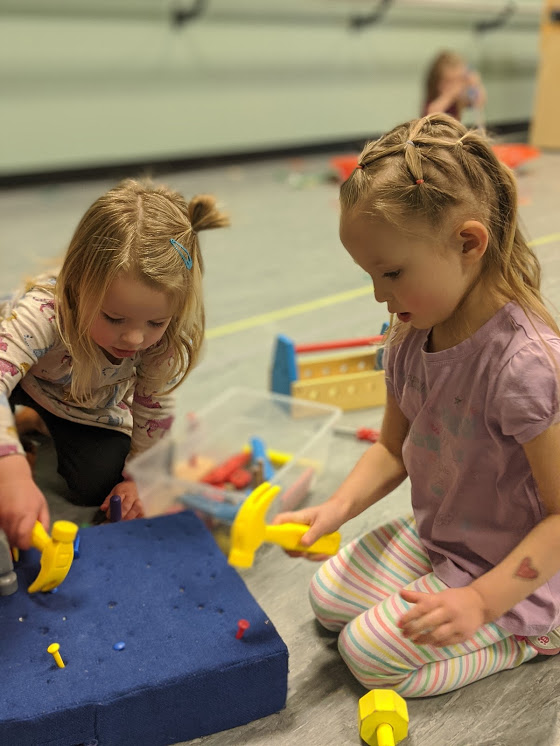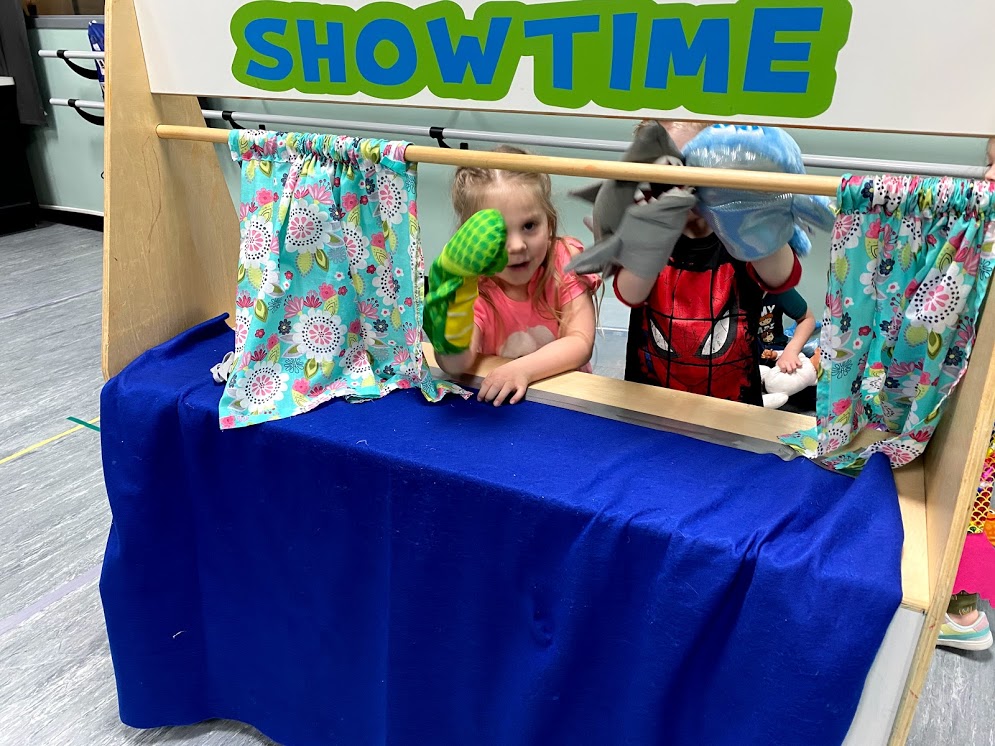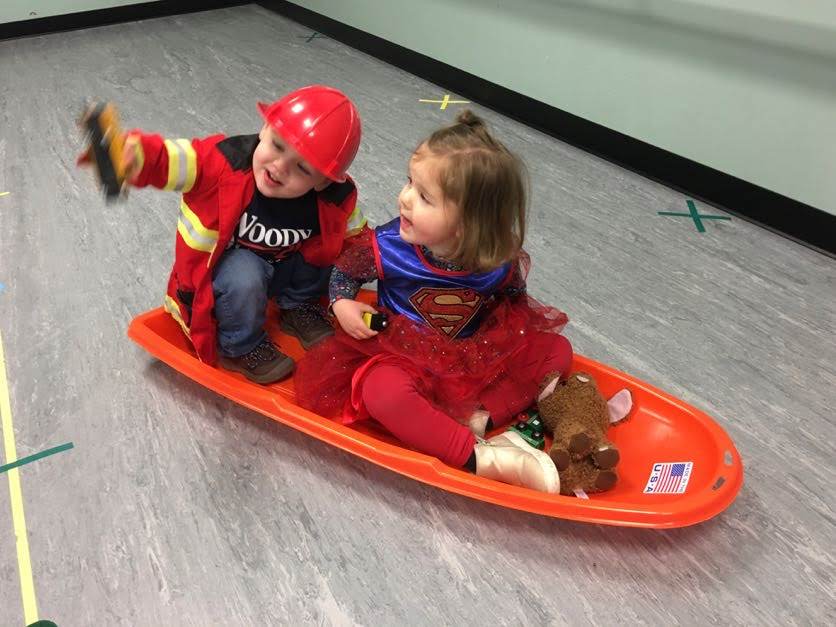Role-playing isn’t just a fun thing for your child to do. It’s actually a critical component of your child’s development.
For the most part, your kiddo can handle their role-playing on their own; after all, it’s what preschoolers are designed to do!
But what about the times when your child wants you to join in? What if you find role-play with your preschooler boring? Difficult? Tear-your-hair-out tedious?
Read on for tips on how to role-play with your preschooler.
Why Role-Play Is So Important for Preschoolers
But first. Why does your preschooler even need to role-play?
Role-play boosts your child’s creativity and imagination, helps them learn how to problem solve, enhances communication skills, and so much more.
Let’s pretend (See what we did there?) that your child is playing store. They’ll likely act out scenes they’ve witnessed firsthand (exchanging of money, for example), while also adding their own bits of creativity (They’re the billionth customer, and they get to have all the candy in the store!). But then they realize that if they eat all that candy, they’ll get cavities. How can they solve this problem? Well, they’ll share the candy with all their friends, of course! Or they’ll come up with a magic spell that protects their teeth!
It may look like silly fun, but that one scenario helped your child develop in several areas. Your child “tried on” an adult role and practiced real-life scenarios. They brought in imagination, cooperation, and problem solving.
How to Role-Play with Your Preschooler
So what happens when your preschooler invites YOU in to the fantasy world? How can you play, especially if you lost your imagination when you lost your last baby tooth?
Don’t fret. Don’t run away. This is something you can do. We promise. Read on for how.
Understand the Types of Role-Play
First, understand the common types of role-play.
Children tend to pretend in three different ways:
- Occupational: This is the type of play where your child pretends to be, or interact with, familiar occupations. Teachers, doctors, firefighters, astronauts, cashiers, etc. are some roles that children like to play. (This play encourages empathy as children “try on” different roles.)
- Fantasy: Think superhero, fairy princess, giant trolls, unicorns, and more. This is the big imaginary world where everything is possible. Children focus on “good” and “bad,” often trying bravery on for size.
- Real-life: What happens in your child’s life? Do they go to amusement parks? Help you cook? Do they play soccer? Go to museums? In real-life play, your child will enact these real-life scenarios.
These types of role-play for preschoolers are flexible. A troll can easily stop at the store on her way home from work, and a firefighter can suddenly need to save the world from invading aliens. Children don’t live within bounds when they play pretend.
Now, why is it important for you to understand these types of play?
Well, if you struggle to play pretend, you can focus on one of these types that feels most comfortable for you. For many adults, real-life or occupational play will come more naturally. You might find it less daunting to be a cashier or doctor than to be a princess hunting dragons.
Go with what you feel comfortable with.
Follow Your Child’s Lead
Playing pretend with a preschooler feels overwhelming to lots of adults, because we think we have to come up with the scenarios. After all, that’s what two children will do when they play together: one pretends one thing and another adds to it, and back and forth.
But you don’t have to have that pressure!
Play therapy techniques make playing simple, while focusing on strengthening your bond with your child.
- When you get down to play with your child, simply follow their lead. If they tell you they are going to drive their cars on a ramp, say, “I’ll drive my cars on a ramp too.” Your child will let you know if that’s what they want you to do or not.
- If you don’t know what to do, ask your child! “What should I do?” They’ll tell you!
- Describe what your child is doing. “I see your toy horse is galloping on the play kitchen.” Your child will let you know if that’s right or not. They might say, “The horse is running away to the mountain! Hurry! Your horse needs to come too!”
- Sit, watch, and reflect: Sometimes, you don’t need to join in. You can simply watch. When your child tells you they made a vegetable stew, reflect back. “I see you made a delicious vegetable stew!” They may invite you in, or they may be fine with you observing.
When you follow your child’s lead, you don’t have to think of imaginative scenarios. You simply follow along. The pressure is off of you, and the focus is on your child.
This gives your child freedom and connection.
Don’t Correct
When playing with your child, remember that it’s their world. If your child picks up a toy horse and calls it a dinosaur, don’t correct them. Just go with it. “Yes, that’s a ferocious dinosaur!” Your child might continue calling it a dinosaur, or may switch back to seeing it as a horse. It doesn’t matter. What matters is that your child is in charge of their own imagination.
Don’t tell them they’re playing with a toy wrong. They may put a phone to their foot instead of their ear. Don’t tell them that’s not how to use a phone. Just go with it!
This is your child’s special time. This is their world where they’re in charge. Don’t micromanage or take away their freedom in this special place.
Simply observe and follow.
Remember: your child is developing skills as they “try on” different roles, situations, and solutions. They simply can’t play wrong! And if you just follow their lead, neither can you!
At UDA Creative Arts Preschool in Draper, Utah, we incorporate play, creative movement, art, music, and dance into every single day. To learn more about how we promote physical development at preschool, contact us online or give us a call at (801) 523-5930.

